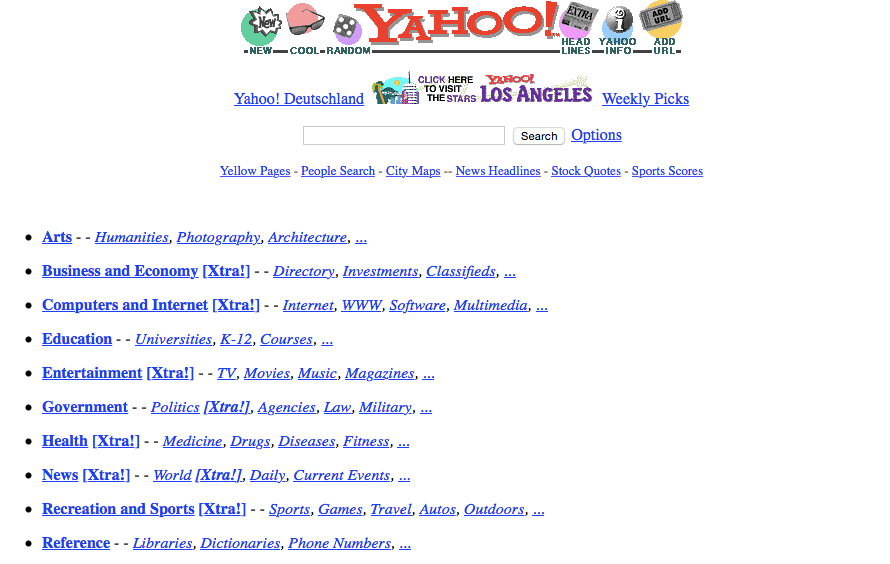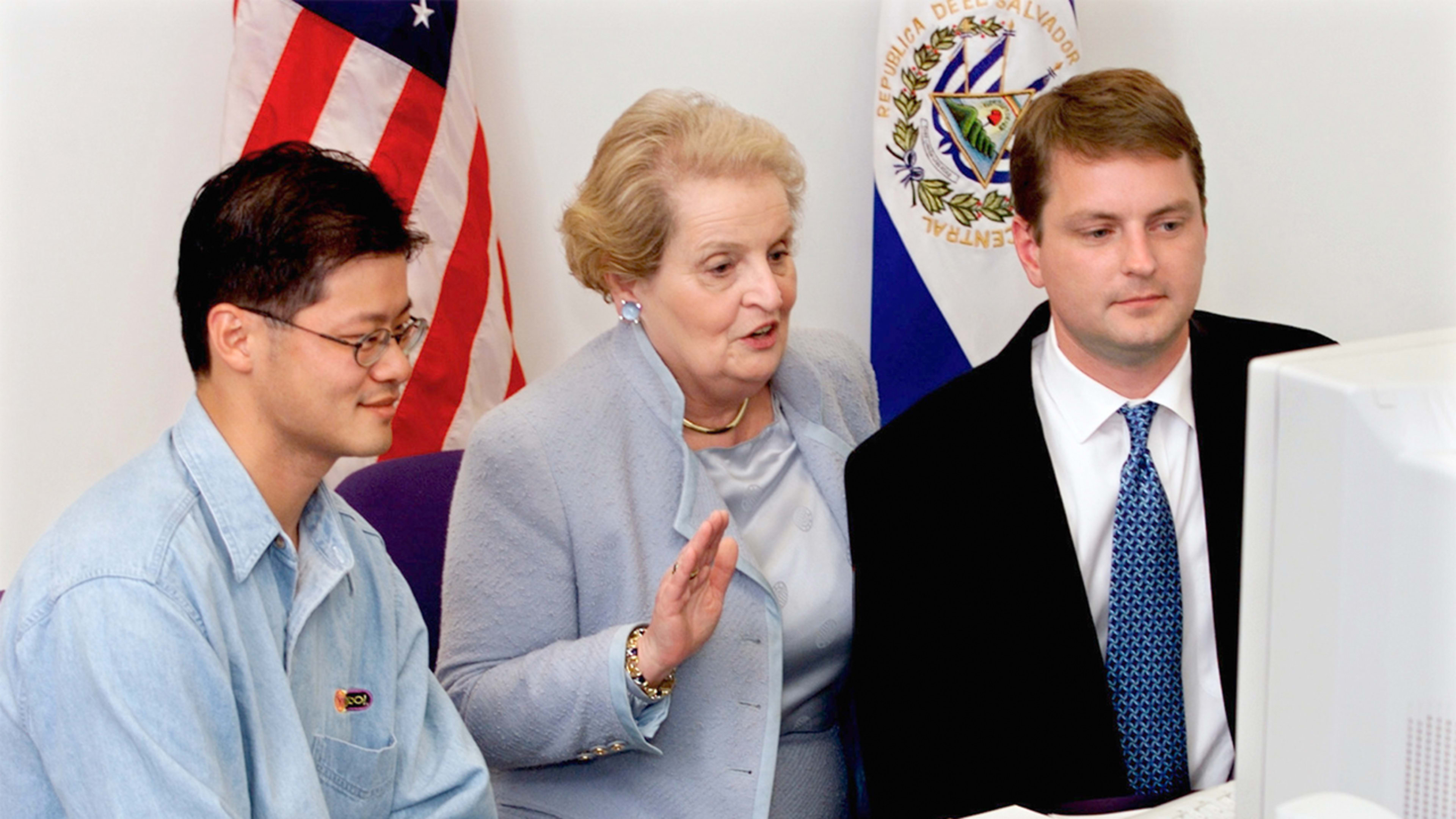I happen to remember the very first thing I did on the World Wide Web. It was the fall of 1994, and I performed a search for websites about one of my favorite comic strips, George Herriman’s Krazy Kat. I was amazed by how many there were, and how easy it was to find them. (There might have been as many as fifteen or twenty.)
I also remember how I did it: Using a new directory which had been put together by a couple of Stanford students, David Filo and Jerry Yang. They had launched their creation in January of that year, and they called it Yahoo! The name was supposedly an acronym for “Yet Another Hierarchical Officious Oracle.”
Yahoo quickly became central to the discovery process that was unfolding on the Internet. Even though it had plenty of competition, it was the first place most people went to find information. And if you ran a website, it might as well have been invisible until you got it listed on Yahoo–a process which could involve a long wait.
It wasn’t just the first important search site–it was the first important consumer site, period.
Yahoo’s web directory stopped being the best way to find stuff on the web long ago. Even before Google came along, it had been eclipsed by search engines such as AltaVista, which automated and dramatically upscaled the process Yahoo’s directory performed using the painstaking work of real human beings who found, classified, and wrote descriptions of websites. But the Yahoo directory is still available today.
As of January 1, 2015, though, it’ll be a goner. At the very bottom of a blog post published today–innocuously titled “Progress Report: Continued Product Focus”–Yahoo buried the news that it’s shuttering its first product. (Danny Sullivan of Search Engine Land has more details.)

Yahoo’s announcement of the directory’s demise is brief and emotionless, much like the notorious “Spring Cleaning” posts in which Google offhandedly mentions that it’s eliminating services such as Google Reader. The company presumably would be perfectly happy if the news went largely ignored. But it’s terribly sad to think of the web existing without a tool which played such a vital role in making the Internet approachable and useful in the first place.
I can’t honestly say that I’m being personally deprived of anything: I haven’t used the Yahoo directory in years. And I don’t expect Ford to continue manufacturing the Model T, or Apple to keep the Apple II in its lineup. Things that matter a lot almost always go away eventually.
Still, even if the Yahoo directory can never be what it once was–and even though Yahoo has far bigger issues to worry about these days, like an investment firm which owns a chunk of it helpfully suggesting that it should consider merging with AOL–simply deleting it at the end of the year feels like bad juju.
Hey, Yahoo: Instead of erasing your founding creation, why not freeze it in time, with a little explanation of why it was so important? Even today, there are people nearing adulthood who were born after the Yahoo directory’s era of preeminence had ended. It would be nice if they–and generations to come–had the opportunity to see what it was like for themselves, rather than simply have it described to them by those of us whose lives it enriched.
Recognize your brand’s excellence by applying to this year’s Brands That Matter Awards before the early-rate deadline, May 3.
